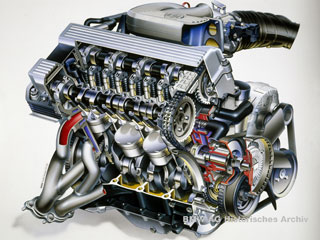BMW 318ti Review: What Makes This Model Stand Out
Vital Factors To Consider for Choosing the most effective Engine for Your Needs
In the world of picking the optimal engine to fulfill your needs, several essential elements need thorough consideration to ensure optimum efficiency and performance. From the nuanced equilibrium in between power and performance to the often-overlooked facets of maintenance and service needs, each facet plays a critical duty in determining the most suitable engine for your specific needs.
Power and Performance
When assessing engines for optimal efficiency, it is crucial to prioritize both power result and performance. Power result measures the capability of an engine to generate energy, which straight impacts its efficiency. A high power result is necessary for requiring tasks such as high-speed demands or sturdy applications. It makes certain that the engine can take care of the work efficiently and efficiently. Power alone is not sufficient; effectiveness plays a considerable role in establishing the general performance of an engine. Performance refers to exactly how well the engine converts fuel into useful energy. A more reliable engine will deliver far better mileage, reduced discharges, and reduced operating prices. Striking the best equilibrium between power result and effectiveness is key to picking an engine that meets your details requirements. When making this decision, it is essential to think about variables such as the meant usage of the engine, ecological influence, and long-term expense effects. By very carefully assessing both power and effectiveness, you can pick an engine that delivers optimum performance and satisfies your needs effectively.
Fuel Effectiveness and Economic Situation
Fuel efficiency refers to the engine's capability to transform gas into energy with minimal waste, straight influencing operating expenses and environmental sustainability. Engines with greater gas effectiveness not just minimize fuel expenses yet likewise reduce carbon discharges, contributing to a greener procedure.

Compatibility and Application
Taking into consideration the gas efficiency and economic situation of an engine, the next crucial element to address is its compatibility and application within specific functional contexts. Compatibility describes exactly how well the engine integrates with the total system or tools it powers. It includes variables such as physical dimensions, installing alternatives, electrical interfaces, and control systems. Making certain compatibility is important to protect against issues such as getting too hot, resonances, or power imbalances (bmw 318ti).
Various engines are made for details objectives, whether it be commercial equipment, marine vessels, autos, or power generators. Understanding the intended application allows for the option of an engine that can supply the necessary power outcome, torque, and operational features.
Upkeep and Solution Demands
Maintenance and service demands play a crucial function in guaranteeing the long life and ideal performance of an engine. Normal maintenance is necessary to avoid failures, extend the lifespan of the engine, and preserve its effectiveness. When picking an engine, it is very important to consider the producer's suggested upkeep routine and the schedule of solution facilities or certified technicians.
Variables such as the regularity of oil changes, filter substitutes, and total examinations can considerably impact the engine's performance. Some engines may call for even more constant maintenance based upon their style and usage, while others may have longer intervals in between upkeep checks. It is crucial to stick to these service requirements to stay clear of pricey fixings and unanticipated downtime.
Price and Spending Plan Factors To Consider
When choosing an engine for a certain application,Budget plan restraints typically play a considerable function in the decision-making procedure. When thinking about the expense and budget plan effects of selecting an engine, it is vital to analyze not just the first acquisition cost but likewise the lasting expenses connected with maintenance, fuel intake, and potential upgrades or fixings. It is important to strike a balance between the in advance price of the engine and its total lifecycle costs to read the article ensure that the picked engine remains monetarily sustainable throughout its functional life expectancy.
Aspects such as gas toughness, efficiency, and reliability can straight impact the complete expense of possession of an engine. While a much more pricey engine may have higher in basics advance expenses, it can potentially result in lower maintenance and gas costs over time, hence offering far better value in the lengthy run.
Verdict

Fuel effectiveness refers to the engine's ability to transform gas right into power with very little waste, straight affecting operating prices and environmental sustainability.Elements influencing gas performance consist of engine style, burning performance, and general efficiency optimization. In addition, selecting the appropriate gas type and grade as suggested by the engine manufacturer can further improve effectiveness and extend engine lifespan.
Engines with excellent serviceability attributes and easily available parts can minimize maintenance costs and decrease the time the engine is out of procedure - bmw 318ti. It is crucial to strike an equilibrium in between the ahead of time expense of the engine and its overall lifecycle costs to make sure that the chosen engine remains financially sustainable throughout its operational life-span